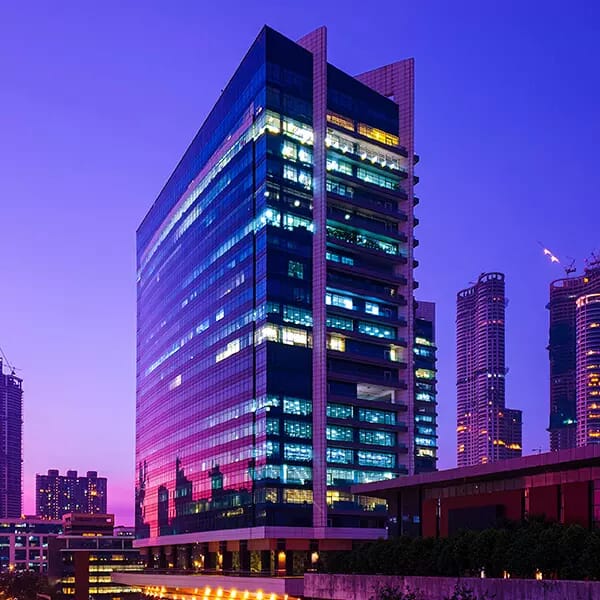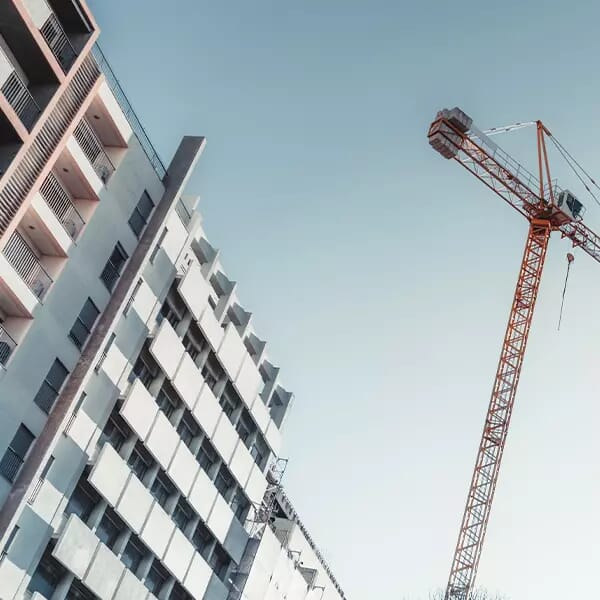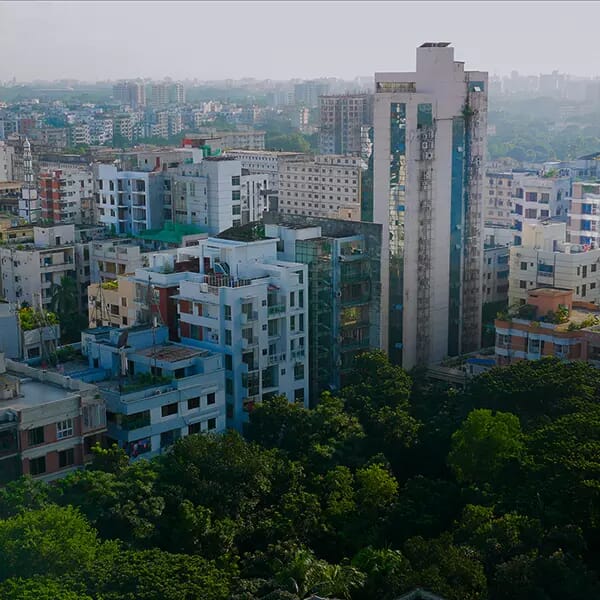How will Costa Rica’s Real Estate Sector Perform in 2020?
January 10, 2020Real Estate
The Central America and Caribbean real estate markets continue to grow, but players will encounter some bumps in the road during 2020. Alfredo Volio, Executive Director of Portafolio Inmobiliario tells GRI Club the opportunities and challenges that 2020 will bring to the Costa Rica real estate market, as well as Portafolio Inmobiliario’s development plans.
Q: What were the main opportunities and needs Portafolio Inmobiliario spotted in the Costa Rican real estate market?
A: Portafolio Inmobiliario is one of the main developers of residential, commercial, corporate, industrial and mixed-use projects in the Central American region. It was founded in 1998 and consolidated in 2003 as a real estate development and asset management company. In Costa Rica, it is one of the largest developers managing US$550 million in assets. The company focuses on developing projects that are not only profitable, but that have a real impact on improving the quality of life of Costa Ricans by creating spaces that produce memorable experiences.
Q: What is the current status of the real estate market in Costa Rica and what factors are hindering or driving its growth?
A: By far the 2019 winners were the class A and A+ offices sectors, as we continue to have good news in regards to FDI in both 2018 and 2019. We also had a good absorption of office spaces during 2018 and 2019, so we see stability in this part of the market. We identified office projects to meet this demand mainly in the provinces of San Jose and Heredia.
The biggest obstacle at this time is the extensive permit process required to obtain all the necessary licenses to build and operate projects. In addition, Costa Rica's internal economy has been in a cycle of recession for more than a year, which has slowed down the performance and absorption of the commercial and residential components dominated by domestic demand.
Q: What are your predictions of how the market will behave during 2020 and what are the main Portfolio projects you want to carry out?
A: We see that it is still a year of caution. It is worth mentioning that in 2019 presented good business opportunities, however, we are cautious and well aware of the situation the country is facing. We see extra caution in the trade and restaurant segments, which have had difficult years and we see this trend will most likely not change. In the case of the office and industrial segments, they continue to be driven by a dynamic private sector, especially since the cost of doing business is cheaper for foreign companies.
The economic forecast for real estate development is better than in previous years. Portafolio Inmobiliario began construction of two important projects, Phase 1 of Torre Universal and Phase 2 of Escazú Village during 2019. We will dedicate 2020 to finishing those projects, begin stage 2 of the medical towers of Avenida Escazú Norte, build stage 4 of the San Antonio Business Park, as well as stage 2 of the residential project 9-84. Additionally, we will initiate a residential project on Avenida Escazú Sur, begin the internal remodeling of Real Cariari, and start the construction of Green Valley, an industrial project in the Grecia area.
Q: How would you rate the urban and mobility infrastructure of San Jose and other major cities, and what impact does it have on the development of successful real estate projects?
A: The infrastructure of the main Latin American cities is generally poor. San José is no exception, particularly its highways. In terms of mobility, San José lags behind since it depends completely on urban and interurban bus lines that typically end in the city center. This makes San José a mega transfer terminal with high levels of congestion.
A few years ago the urban train that connects the east of the city with the west was reopened. The current government has not only promoted its use but also wants to strengthen it and create a new electric train project. The impact of this lag in infrastructure is the dependence that continues to exist on vehicles, causing parking requirements for real estate projects to increase, even though the global trend is the opposite.
Q: What is Portfolio's financial strategy to continue financing its future development and how could the Costa Rican financial market be improved to accelerate development?
A: Our asset management portfolio has been growing and most of these projects are financed over the long term with good financial conditions, which frees up capital to continue growing. Most of what we are developing is done with our own capital, as well as capital from our strategic partners and investors. Each day it becomes more complicated to find financial entities that are willing to take construction risks, which forces players to use capital and investor's money for that specific process. Because development is dependent on the country's economic cycles, our strategy is to rely on asset management, not development, for survival.
Q: In your opinion, why should international investors evaluate entering the Central American and Caribbean real estate market?
A: CA and the Caribbean are emerging markets, with significant proximity to the US and where many multinational companies invested, taking advantage of special tax exemption regimes and the quality of the labor force. We do not see that trend changing or decreasing in the near future, which increases attractiveness for investors seeking higher returns in emerging countries with the assurance that the tenants are world-renowned companies.
Q: What do you hope to gain from being part of the GRI Club?
A: I look forward to expanding our network of high-level contacts in the real estate development world to share our knowledge and learn from the best practices of our colleagues. We want to continue innovating within our industry to transform our city into a better place and create memorable experiences.
Join us at Central America and Caribbean GRI 2020 in Panama City this upcoming March 24-25. Real estate developers and investors from Panama, Costa Rica, Guatemala, El Salvador, Dominican Republic, Puerto Rica, among others, will come together for the first time and discuss the future of the sector. Check out the program here:

Q: What were the main opportunities and needs Portafolio Inmobiliario spotted in the Costa Rican real estate market?
A: Portafolio Inmobiliario is one of the main developers of residential, commercial, corporate, industrial and mixed-use projects in the Central American region. It was founded in 1998 and consolidated in 2003 as a real estate development and asset management company. In Costa Rica, it is one of the largest developers managing US$550 million in assets. The company focuses on developing projects that are not only profitable, but that have a real impact on improving the quality of life of Costa Ricans by creating spaces that produce memorable experiences.
Q: What is the current status of the real estate market in Costa Rica and what factors are hindering or driving its growth?
A: By far the 2019 winners were the class A and A+ offices sectors, as we continue to have good news in regards to FDI in both 2018 and 2019. We also had a good absorption of office spaces during 2018 and 2019, so we see stability in this part of the market. We identified office projects to meet this demand mainly in the provinces of San Jose and Heredia.
The biggest obstacle at this time is the extensive permit process required to obtain all the necessary licenses to build and operate projects. In addition, Costa Rica's internal economy has been in a cycle of recession for more than a year, which has slowed down the performance and absorption of the commercial and residential components dominated by domestic demand.
Q: What are your predictions of how the market will behave during 2020 and what are the main Portfolio projects you want to carry out?
A: We see that it is still a year of caution. It is worth mentioning that in 2019 presented good business opportunities, however, we are cautious and well aware of the situation the country is facing. We see extra caution in the trade and restaurant segments, which have had difficult years and we see this trend will most likely not change. In the case of the office and industrial segments, they continue to be driven by a dynamic private sector, especially since the cost of doing business is cheaper for foreign companies.
The economic forecast for real estate development is better than in previous years. Portafolio Inmobiliario began construction of two important projects, Phase 1 of Torre Universal and Phase 2 of Escazú Village during 2019. We will dedicate 2020 to finishing those projects, begin stage 2 of the medical towers of Avenida Escazú Norte, build stage 4 of the San Antonio Business Park, as well as stage 2 of the residential project 9-84. Additionally, we will initiate a residential project on Avenida Escazú Sur, begin the internal remodeling of Real Cariari, and start the construction of Green Valley, an industrial project in the Grecia area.
Q: How would you rate the urban and mobility infrastructure of San Jose and other major cities, and what impact does it have on the development of successful real estate projects?
A: The infrastructure of the main Latin American cities is generally poor. San José is no exception, particularly its highways. In terms of mobility, San José lags behind since it depends completely on urban and interurban bus lines that typically end in the city center. This makes San José a mega transfer terminal with high levels of congestion.
A few years ago the urban train that connects the east of the city with the west was reopened. The current government has not only promoted its use but also wants to strengthen it and create a new electric train project. The impact of this lag in infrastructure is the dependence that continues to exist on vehicles, causing parking requirements for real estate projects to increase, even though the global trend is the opposite.
Q: What is Portfolio's financial strategy to continue financing its future development and how could the Costa Rican financial market be improved to accelerate development?
A: Our asset management portfolio has been growing and most of these projects are financed over the long term with good financial conditions, which frees up capital to continue growing. Most of what we are developing is done with our own capital, as well as capital from our strategic partners and investors. Each day it becomes more complicated to find financial entities that are willing to take construction risks, which forces players to use capital and investor's money for that specific process. Because development is dependent on the country's economic cycles, our strategy is to rely on asset management, not development, for survival.
Q: In your opinion, why should international investors evaluate entering the Central American and Caribbean real estate market?
A: CA and the Caribbean are emerging markets, with significant proximity to the US and where many multinational companies invested, taking advantage of special tax exemption regimes and the quality of the labor force. We do not see that trend changing or decreasing in the near future, which increases attractiveness for investors seeking higher returns in emerging countries with the assurance that the tenants are world-renowned companies.
Q: What do you hope to gain from being part of the GRI Club?
A: I look forward to expanding our network of high-level contacts in the real estate development world to share our knowledge and learn from the best practices of our colleagues. We want to continue innovating within our industry to transform our city into a better place and create memorable experiences.
Join us at Central America and Caribbean GRI 2020 in Panama City this upcoming March 24-25. Real estate developers and investors from Panama, Costa Rica, Guatemala, El Salvador, Dominican Republic, Puerto Rica, among others, will come together for the first time and discuss the future of the sector. Check out the program here:








